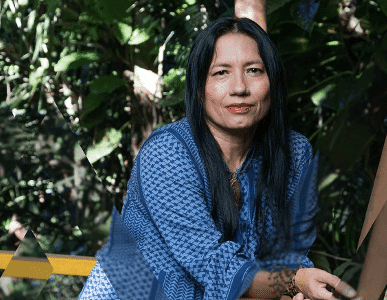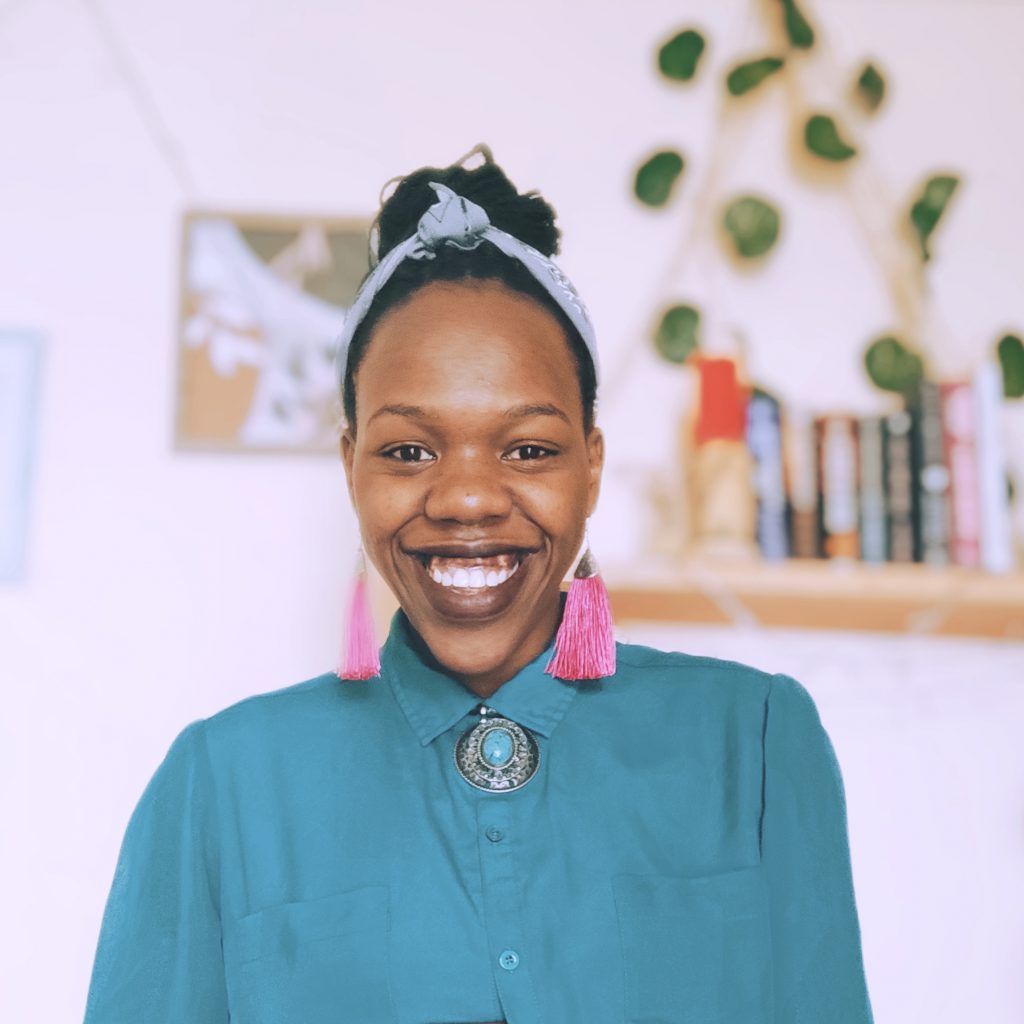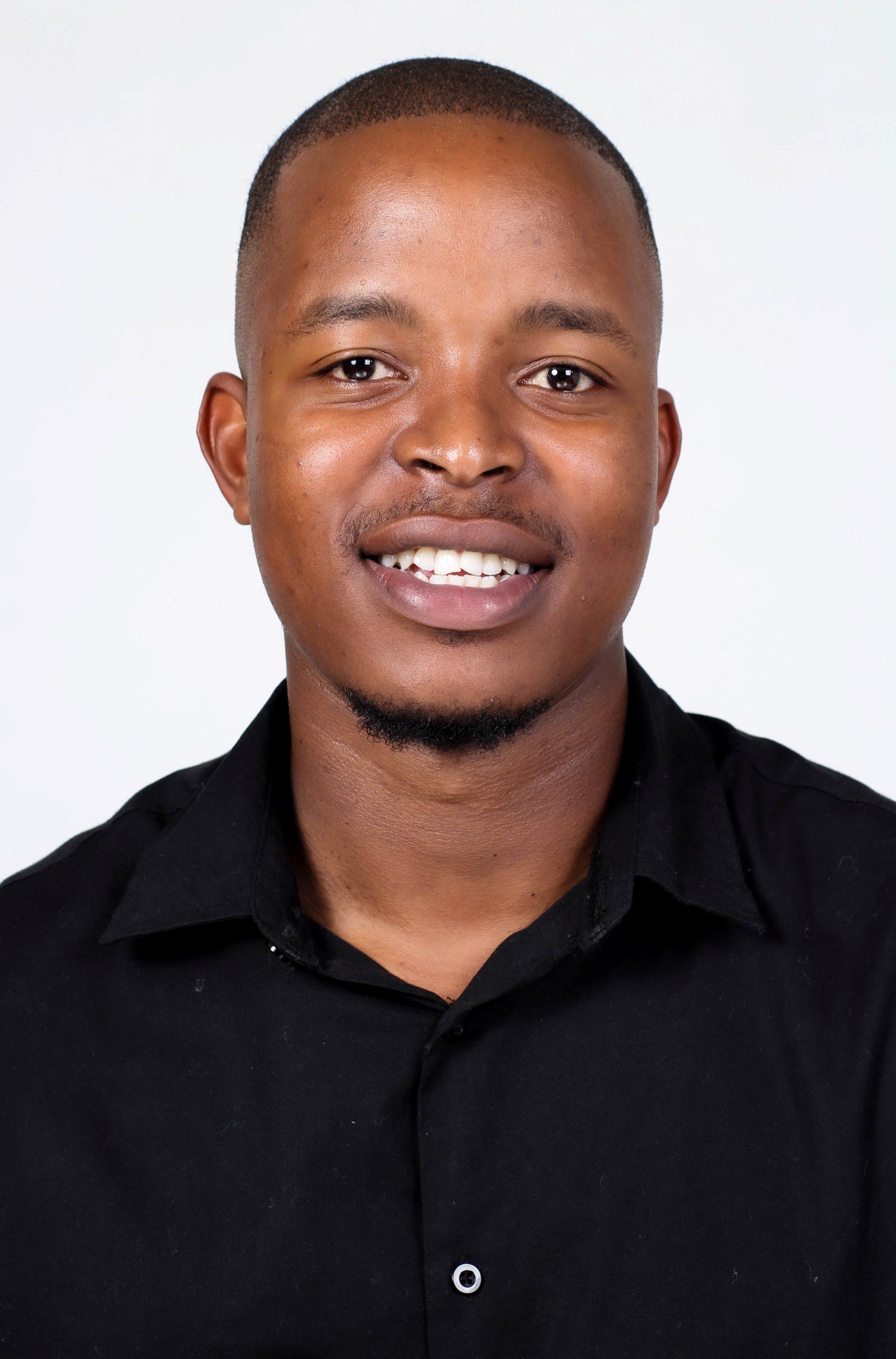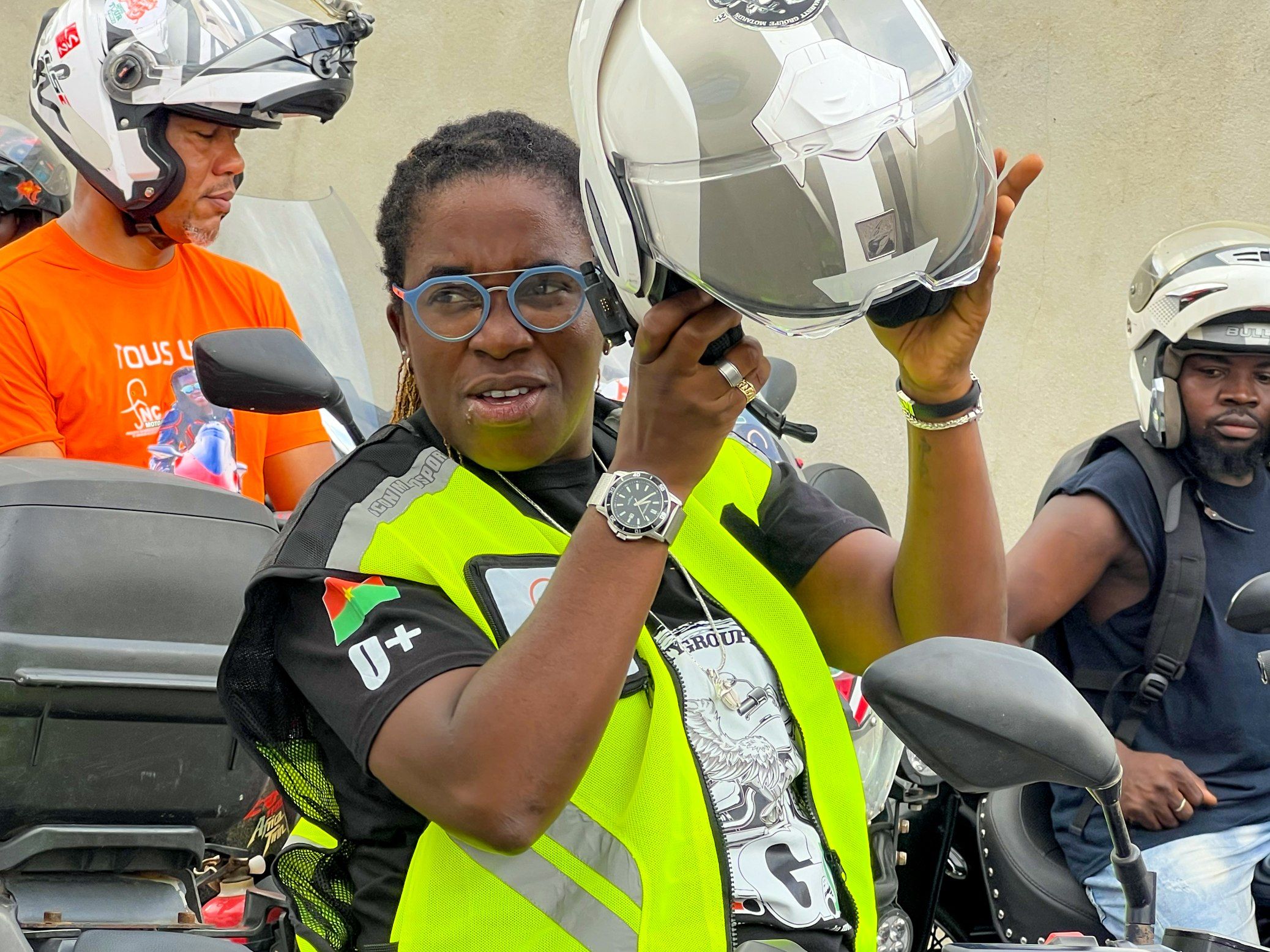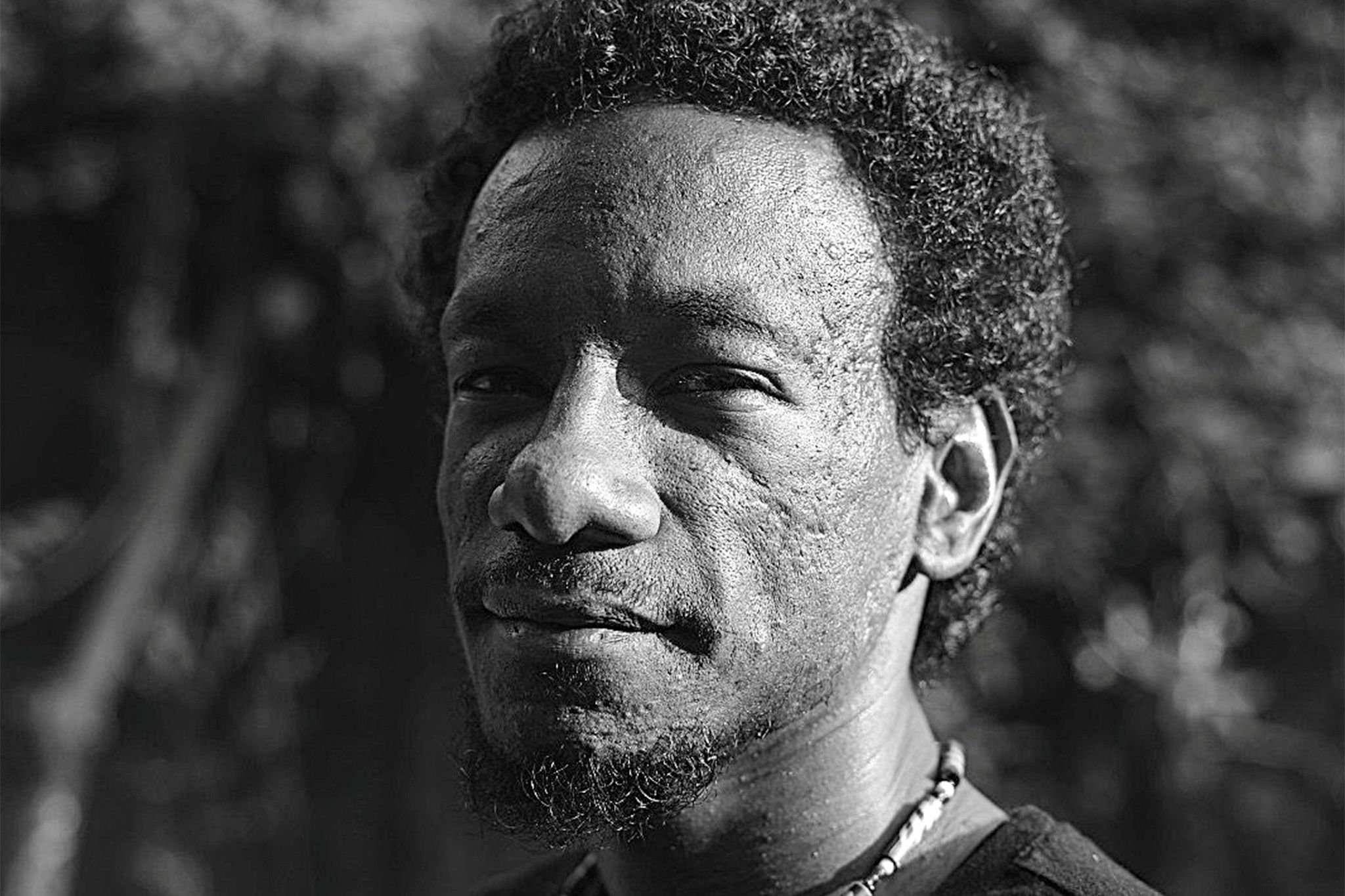Highlighting the challenges and issues faced by indigenous people through journalism, Elaíze Farias can only be described as brave and bold. After telling stories about the environment and the indigenous people of the Amazon, she noticed how poorly such stories were handled. Considered secondary issues by most of the mainstream media, the stories were given a backseat. She wanted to change that.
“We want to tell stories of people who are excluded from mainstream media,” she says.
And she does that as an editor and a journalist under Amazônia Real, a media agency she co-founded.

Who is Elaíze Farias?
Elaíze Farias was born in Parintins in the Amazon. Her maternal family came from the Sawere-Mawe people, from the lower Amazon. From a young age, she got to interact with stories told by her grandmother known as visagismo, haunting stories, from the lower Amazon which she developed a liking for. As she grew, she would read horror and fantasy stories from books she borrowed from her school library.
"I think that gave me a lot of this taste for storytelling. When I was a kid, I told stories about many things and invented some of them too."
With the love she had for storytelling, she never really intended to be a journalist. However, it was challenging for a woman from a state school to be admitted to the Federal University of Amazonas.
In an interview with the Guardian, she says, “Journalism was a way of getting a university degree. There was nothing romantic about my choosing journalism.”
While studying, she worked as a reporter for a “local press”, as she calls it, writing stories about culture and recent news happening in Manaus. Bringing stories about social injustice to light, covering issues related to the environment and indigenous people, rekindled her love for storytelling. However, she was troubled by how the stories were handled.
“I became worried that journalism stigmatises Indigenous people,” she says. “Outsiders like to make the Amazon exotic, like a theatre. They want to wow people. They want something they can sell.”
And that was how those stories were told. She felt that the stereotypes promoted in the media reinforced what people thought of the indigenous people. The voices and issues of indigenous people were not represented. And so, together with journalist Katia Brasil, she founded Amazônia Real, a journalism agency.
Amazônia Real
As the name suggests, Brasil and Farias wanted to bring to light the real Amazon. They wanted to have a realistic coverage of what was happening in the region – the reality of the people, animals and environment they lived in. After a year spent structuring the agency, they officially began their work in October 2013. The agency is based in the Amazon region, with the aim to be and reach places where traditional media fails to reach.
“When we created Amazônia Real, it was to have a journalistic agency that reaffirms the importance of traditional populations and the environment, without making a division between the two. Because it's no use talking only about biodiversity or only about animals when, in fact, everything is connected: the forest, the river, the population, the population of animals,” says Farias.
According to its website, the agency publishes exclusive stories on deforestation and climate emergency, human rights and territorial violations, agrarian conflicts, human trafficking, and the embezzlement of public funds in diverse formats such as audio, video and text and occurs practically every day. They are produced with a rigorous apparition and they impact and provide a service to the citizens.
When they established Amazônia Real, they sought to have independent and ethical journalism, free from the influence of any business, persons or corporations. They did not accept any financial help that would affect how they told the stories of the Amazon.
“We don’t want people to think that we have an allegiance to anyone who isn’t the public,” Farias says.
They run the agency with funding from their crowdfunding drive and readers’ support in order to ensure that there is freedom of speech, information democratisation and social justice in the Brazilian press. Stories published on their website can be republished by other media under a Creative Commons license.
As a leading and trusted media group in the Amazon area, Amazônia Real sets itself apart in the way they handle their stories. While they are the ones telling the stories, they allow the stories and the people included to speak for themselves. They purpose to give them a voice, something that mainstream media had denied them for far too long.
“You can’t interview someone, write the story, and then not want to know what happens to that person, to that population. We don’t always report something when it happens in order to get “the scoop.” Instead, we carefully cover the peoples’ perspectives, and take into account how they want their story to be told. We want to highlight the demands and experiences of the Amazonian people,” says Farias to Committee to Protect Journalists(CPJ).
The journalists who work for Amazônia Real are therefore encouraged to build and nurture a relationship with the people whose stories they tell. People from the different indigenous communities are also given a platform to directly share their stories on Amazônia Real, giving their stories breadth and depth in coverage.
Farias says, “It’s about putting a different perspective forward. It’s about putting the voices of marginalised people first.”
Amazônia Real has received recognition such as a rank in Latin America’s 100 digital news startups by the Spanish organisation SembraMedia in 2017. Several of their stories have won awards such as the Prêmio de Jornalismo Cidadão da Radiotube 2015, Prêmios Melhor Roteiro e Melhor Direção do Festival de Cinema Olhar do Norte 2018, Prêmio Vladimir Herzog 2019 and the 2018 King of Spain International Journalism Award as the most outstanding outlet in Ibero-America.
Her recognition
She holds the Embratel Press Prize, the Onça-Pintada (Jaguar) Prize of Journalism and the Fapeam Prize of Scientific Journalism.
At the beginning of the year, Elaíze received a Global Human Rights Defender Award from the U.S. State Department for her newsroom’s reporting, including coverage of the murders of journalist Dom Philips and indigenous expert Bruno Pereira in the Javari Valley, one of their country’s largest and most remote Indigenous territories. The award is given to people from around the world who have shown leadership and courage while promoting and defending human rights and fundamental freedoms.
Her philosophy
While upholding the most important aspects of journalism, Farias challenges some of the basic concepts of the field. For instance, journalists are encouraged to always be neutral in their reporting of issues. Farias believes that neutrality is a myth in the current journalism field. This is because everyone, including journalists, has their own worldviews which shape how they tell their stories, making it difficult for them to be objective. This, she says, especially affects how Western journalists tell the stories of the people in the Amazon.
“If you come in with this bias in your mind, you might see someone fishing for food and say they are poor, when they see themselves as rich,” she says, which inevitably affects story accuracy.
Refusing to be called an activist, she believes that if journalists could take a stand for who they are representing, they would be able to represent them effectively as Amazônia Real does for the indigenous people.
Farias advocates for the media and the world to recognise the fact that the Amazon, like every other society, is very heterogeneous. Reducing the diverse cultures, communities and experiences into a single narrative is a disservice to the people of the Amazon.
“Even though I was born, and lived all my life in the Amazon, I discover a new reality with every story. Which proves that every society, every region is heterogeneous," says Elaíze. "When someone says they've been to the Amazon, I'm already suspicious. Which part? I always say that it's not homogeneous here: what happens there in Rio Branco doesn't happen in Alto Solimões."
With journalism, Farias found a way back to storytelling. She felt connected once more to her grandmother and the memories she lived when she was younger. She has also been able to learn more about her background, to find her own ‘ethnic and cultural reaffirmation’, as she puts it.

